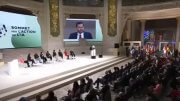Building Faithful Stewardship in the Digital Age
Dear Christian,
The rise of artificial intelligence forces us to ask hard questions. How should followers of Christ approach technology that promises god-like knowledge and capability? What does faithful stewardship look like when machines can think, write, and converse?
Recently, the Family Research Council hosted a panel discussion addressing these critical concerns. The resulting article from Washington Stand offers excellent practical wisdom that every believer should read. The panel warned about AI’s impact on cognitive development, mental health risks for children, and the danger of replacing human relationships with chatbots.
I want to commend this work and build upon it. While their practical concerns are vital, we need a deeper theological foundation. Therefore, let me explore how Scripture illuminates this issue beyond helpful tips and warnings.
The Image of God: Why AI Can Never Replace Humans
The Washington Stand article rightly warns that AI chatbots threaten human relationships. However, we must understand why this matters theologically, not just psychologically.
Genesis 1:27 declares, “So God created man in his own image, in the image of God he created him; male and female he created them.” This truth changes everything. Humans bear God’s image—we reflect His character, relate personally, love sacrificially, and create meaningfully. AI, no matter how sophisticated, does not and cannot bear the imago Dei.
Consequently, when a child forms a “friendship” with an AI chatbot, something ontologically false occurs. The machine simulates a relationship without actual personhood. It mimics empathy without genuine care. It responds without truly understanding. This isn’t merely unhealthy—it’s a counterfeit of God’s design for human flourishing.
Moreover, the concern extends beyond children. Adults who turn to AI for emotional support exchange the real for the artificial. We were created for communion with God and fellowship with image-bearers. No algorithm can satisfy that divine design, regardless of how convincingly it responds.
Stewardship Under God’s Sovereignty: Beyond Human Autonomy
The panel wisely stated, “We should never submit to AI—AI submits to us.” This captures an important truth, yet it needs biblical precision.
Scripture teaches that we are stewards, not autonomous rulers. God commanded Adam to “work and keep” the garden (Genesis 2:15). Similarly, we must steward technology under God’s authority. The question isn’t merely “Does AI submit to human will?” but rather “Are we using AI in submission to God’s will?”
Furthermore, this distinction matters practically. If we view AI only through human autonomy, we might justify any use that serves our purposes. However, biblical stewardship asks: Does this honor God? Does it serve my neighbor? Does it cultivate wisdom or replace it? Does it strengthen community or fragment it?
Additionally, we cannot simply assert control over AI without acknowledging our accountability to the Creator. Therefore, Christian engagement with AI must begin with humility before God, not confidence in human mastery.
Biblical Wisdom Versus the “Wisdom Muscle”
The Washington Stand article helpfully warns that AI can atrophy our “wisdom muscle” when we outsource thinking to ChatGPT. This analogy works on a practical level, but Scripture reveals something deeper.
James 3:17 teaches, “But the wisdom from above is first pure, then peaceable, gentle, open to reason, full of mercy and good fruits, impartial and sincere.” Notice that godly wisdom involves moral character formed through relationship with God and others. It isn’t merely cognitive strength—it’s spiritual maturity shaped by the Holy Spirit.
Proverbs 9:10 declares, “The fear of the LORD is the beginning of wisdom.” Consequently, when students use AI to avoid the wrestling, questioning, and struggling that produces wisdom, they miss more than intellectual growth. They bypass the sanctifying process God uses to develop godly character.
Moreover, 1 Corinthians 1:25 reminds us, “For the foolishness of God is wiser than men, and the weakness of God is stronger than men.” Human wisdom apart from God—whether augmented by AI or not—remains foolishness. Therefore, our concern shouldn’t just be maintaining cognitive ability but cultivating dependence on divine wisdom.
The Tower of Babel and AI’s Exponential Ambition
The panel noted AI’s exponential growth trajectory—how AIs build better AIs in an accelerating cycle. This technological reality echoes an ancient biblical pattern.
Genesis 11 records humanity’s attempt to build a tower “with its top in the heavens” to “make a name for ourselves.” God confused their language and scattered them. Why? Because human attempts to transcend God-given limitations apart from His blessing always end in judgment.
Similarly, AI promises god-like knowledge, infinite memory, and capabilities beyond human limitation. The serpent’s ancient lie resurfaces: “You will be like God, knowing good and evil” (Genesis 3:5). Technology becomes the new tree promising divine status.
However, history demonstrates that human pride invites divine intervention. We cannot predict exactly how God will respond to AI’s exponential ambitions, but Scripture assures us He will not allow His image-bearers to be replaced or His glory to be stolen by machines.
Therefore, Christians must recognize AI development as more than technological progress. It represents humanity’s recurring rebellion—attempting to build autonomy apart from the Creator. This spiritual dimension demands prophetic warning, not just practical caution.
The Church’s Response: Proactive Gospel, Not Reactive Refuge
One panelist expressed hope that when people lose jobs to AI and feel abandoned by chatbots, “they’re going to be running back into the churches.” While I appreciate this optimism, Scripture and history counsel caution.
Revelation 16:9 records that even amid devastating plagues, people “cursed the name of God who had power over these plagues. They did not repent and give him glory.” Crisis alone doesn’t produce repentance. Desperation can drive people toward false solutions as easily as toward the true God.
Consequently, the church cannot passively wait for refugees fleeing AI’s destruction. We must proactively proclaim the gospel now. We must build authentic Christian community now. We must disciple families in biblical wisdom now.
Furthermore, revival requires the Holy Spirit’s work, not merely cultural circumstances. Therefore, let us pray for genuine awakening while faithfully equipping believers to engage AI with discernment and biblical conviction.
Christian Engagement Requires Discernment, Not Just Participation
The panel rightly insisted, “If Christians don’t engage with AI at all, we will be left behind because the enemy is going to use it.” I agree completely. However, engagement requires more than participation—it demands discernment.
Not every “Christian AI platform” honors biblical truth. We must ask: Does it manipulate users through engagement algorithms? Does it protect privacy ethically? Does it promote sound doctrine or merely baptize secular values with religious language?
Moreover, engagement means using AI as a tool for God’s kingdom purposes while rejecting uses that contradict His character. We can employ AI for biblical research, ministry communication, and productivity enhancement. However, we must resist AI that replaces prayer, pastoral care, or biblical meditation.
Additionally, Christian developers and users bear responsibility to build and use AI that serves others rather than exploits them. This requires theological wisdom combined with technical skill—a partnership the church desperately needs.
Practical Steps Grounded in Biblical Truth
Building on Washington Stand’s excellent practical advice, here are action steps grounded in theology:
For Parents:
- Teach children they bear God’s image; machines do not
- Disable voice features on AI tools—text-only reduces false personification
- Model asking “What does Scripture say?” before asking “What does AI say?”
- Foster real relationships through church, family, and Christian community
For Church Leaders:
- Preach on stewardship, imago Dei, and biblical wisdom in our technological age
- Create spaces for offline fellowship that counter digital isolation
- Equip families to navigate AI with biblical discernment
- Model balanced AI use—productivity tools, yes; relationship replacement, no
For Individual Believers:
- Submit AI use to God’s authority through prayer and Scripture
- Maintain spiritual disciplines that AI cannot replace (prayer, worship, fellowship)
- Develop critical thinking by comparing AI outputs to biblical truth
- Use AI to amplify kingdom work, not to bypass sanctifying struggle
For Christian Professionals:
- Bring biblical ethics into AI development conversations
- Advocate for transparency, privacy protection, and human dignity
- Build tools that serve rather than manipulate
- Remember that all work serves God’s glory, not just human advancement
Hope Anchored in God’s Sovereignty
Despite legitimate concerns about AI, Christians need not despair. Our hope rests in God’s sovereignty, not technological trends.
Daniel 2:21 reminds us, “He changes times and seasons; he removes kings and sets up kings; he gives wisdom to the wise and knowledge to those who have understanding.” God remains sovereign over every technological development. AI neither surprises Him nor threatens His purposes.
Moreover, Romans 8:28 promises, “And we know that for those who love God all things work together for good, for those who are called according to his purpose.” Even AI’s challenges can refine the church, clarify our mission, and drive us deeper into dependence on God.
Furthermore, Philippians 1:6 assures us, “He who began a good work in you will bring it to completion at the day of Jesus Christ.” God will complete His work in His people. No machine can thwart His sanctifying purposes.
Therefore, let us engage AI with wisdom, steward it with faithfulness, and trust God with the outcomes. The same Lord who scattered Babel’s builders reigns over Silicon Valley’s innovators. He will preserve His church and accomplish His will.
Conclusion: Gratitude and Call to Action
I deeply appreciate the Washington Stand’s work in bringing these critical issues before the Christian community. Their practical wisdom provides an essential foundation. I encourage every reader to visit their article and support their ministry.
However, practical wisdom alone isn’t enough. We need theological depth that grounds our concerns in Scripture’s eternal truth. AI challenges us to remember who we are (image-bearers), whose we are (God’s stewards), and what we’re called to do (make disciples, not machines, in God’s image).
As believers, we stand at a crossroads. We can fear AI and retreat, or we can engage it faithfully under God’s authority. Let us choose the latter—not with naive optimism, but with biblical conviction and hope anchored in Christ.
The question isn’t whether AI will change our world—it already has. The question is whether Christians will respond with wisdom from above or be swept along by cultural currents. May God grant us discernment, courage, and faithfulness for such a time as this.
For Further Study:
Scripture References:
- Genesis 1:27 (Imago Dei)
- Genesis 2:15 (Stewardship mandate)
- Genesis 3:5 (The original lie)
- Genesis 11:1-9 (Tower of Babel)
- Proverbs 9:10 (Fear of the LORD)
- James 3:13-18 (Godly wisdom)
- 1 Corinthians 1:18-31 (God’s wisdom vs. human wisdom)
- Daniel 2:21 (God’s sovereignty over knowledge)
- Romans 8:28 (All things for good)
- Philippians 1:6 (God completes His work)
Recommended Resources:
- Washington Stand Article on AI
- Family Research Council’s Pray Vote Stand Summit materials
- Virginia Christian Alliance resources on technology and faith
Related VCA Articles:
- Biblical Sexuality and Digital Culture
- Godly Relationships in the Social Media Age
- Obedience to God in Technological Stewardship
Comment Policy: We welcome thoughtful and respectful dialogue from all viewpoints. Comments must remain civil, relevant, and free of profanity, personal attacks, or mockery of Christian faith. Disagreement is allowed—disrespect is not.




